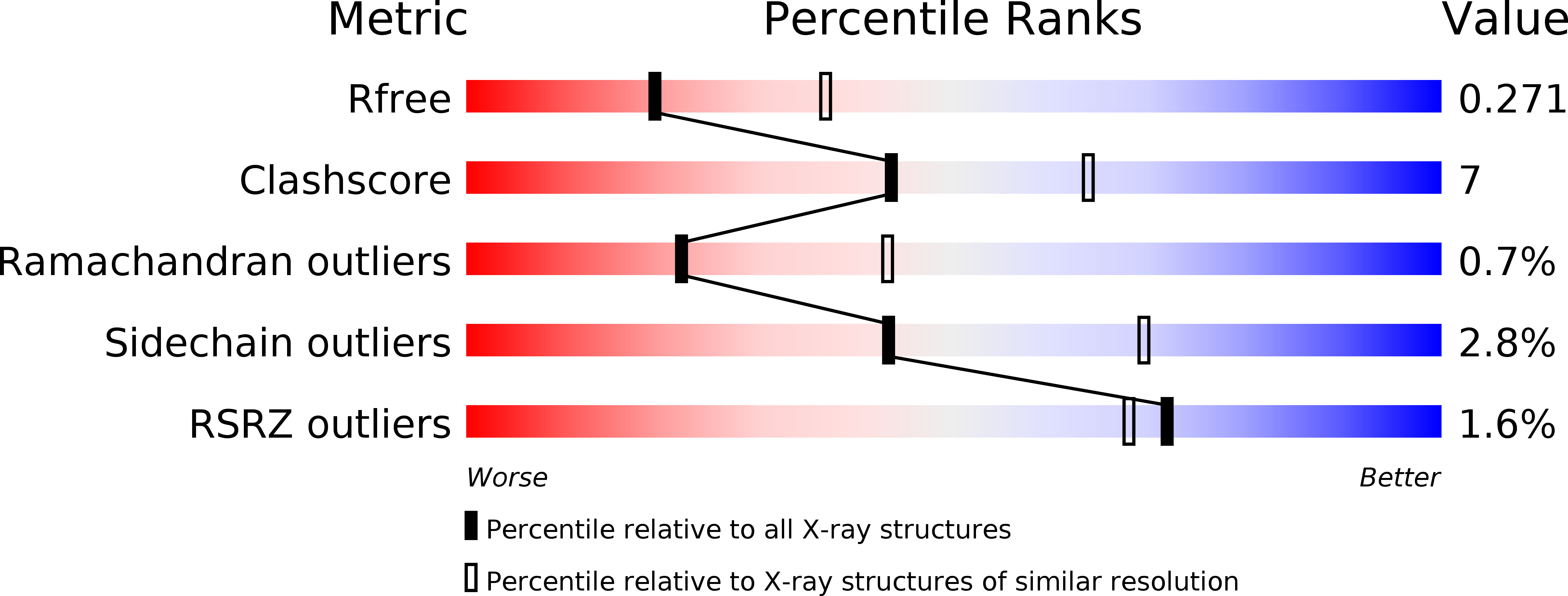Structural basis for multifunctional roles of mammalian aminopeptidase N.
Chen, L., Lin, Y.L., Peng, G., Li, F.(2012) Proc Natl Acad Sci U S A 109: 17966-17971
- PubMed: 23071329
- DOI: https://doi.org/10.1073/pnas.1210123109
- Primary Citation of Related Structures:
4FKE, 4FKH, 4FKK, 4HOM, 4NAQ, 4NZ8 - PubMed Abstract:
Mammalian aminopeptidase N (APN) plays multifunctional roles in many physiological processes, including peptide metabolism, cell motility and adhesion, and coronavirus entry. Here we determined crystal structures of porcine APN at 1.85 Å resolution and its complexes with a peptide substrate and a variety of inhibitors. APN is a cell surface-anchored and seahorse-shaped zinc-aminopeptidase that forms head-to-head dimers. Captured in a catalytically active state, these structures of APN illustrate a detailed catalytic mechanism for its aminopeptidase activity. The active site and peptide-binding channel of APN reside in cavities with wide openings, allowing easy access to peptides. The cavities can potentially open up further to bind the exposed N terminus of proteins. The active site anchors the N-terminal neutral residue of peptides/proteins, and the peptide-binding channel binds the remainder of the peptides/proteins in a sequence-independent fashion. APN also provides an exposed outer surface for coronavirus binding, without its physiological functions being affected. These structural features enable APN to function ubiquitously in peptide metabolism, interact with other proteins to mediate cell motility and adhesion, and serve as a coronavirus receptor. This study elucidates multifunctional roles of APN and can guide therapeutic efforts to treat APN-related diseases.
Organizational Affiliation:
Department of Pharmacology, University of Minnesota Medical School, Minneapolis, MN 55455, USA.




















